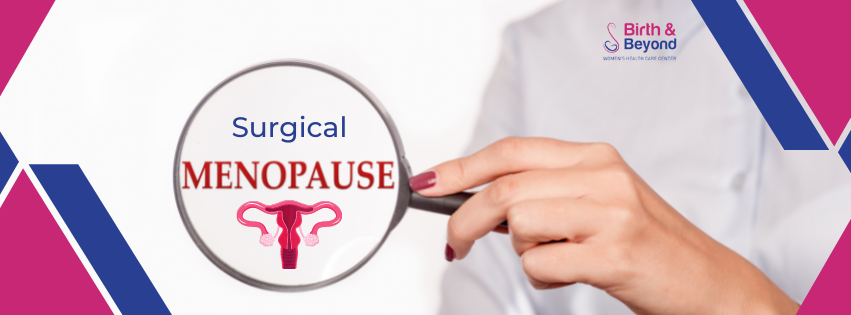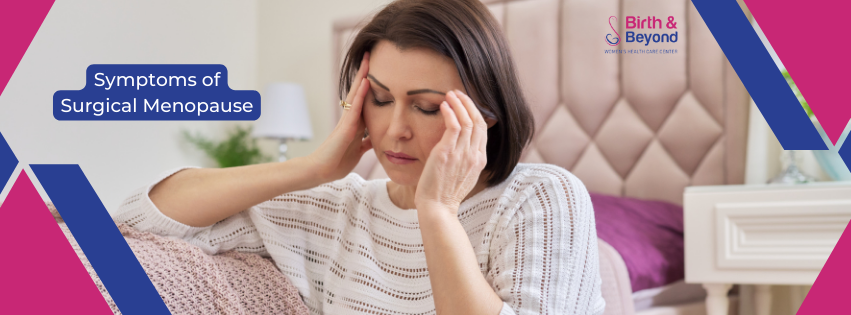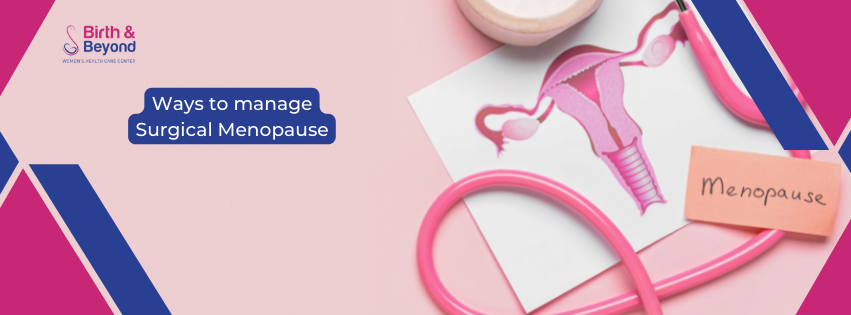Gynaecologists in HSR Layout | Dr. Sunita Pawar

Menopause that begins after the surgical removal of both ovaries is referred to as surgical menopause. Menstruation immediately stops after it, and sex hormone levels plummet. A woman who has a total or radical hysterectomy, which entails the removal of both ovaries in addition to the entire uterus, may also experience surgical menopause. Following an oophorectomy, a procedure to remove the ovaries, surgical menopause takes place. In a women’s body, oestrogen is primarily produced by the ovaries. Regardless of the patient’s age, removing them causes immediate menopause.
Women go through menopause typically between the ages of 45 and 55. When a woman’s periods have been absent for a full year, she is considered to be in menopause. However, perimenopausal symptoms can start appearing in some women years earlier.
Menopause is most common in women between the ages of 45 and 55. A woman is said to be in menopause when her periods have been irregular for 12 months. However, some women will begin to have perimenopausal symptoms years before they go through menopause.

Some of the most typical menopause and peri-menopause symptoms include the ones listed below:
- Hot flashes
- Night sweats or cold flashes
- Dryness of the vaginal canal
- Mood swings
- Difficulty sleeping
- Dry skin
- Weight gain
Oophorectomy’s and the surgical menopause can sometimes be life-saving procedures. Certain cancers depend on oestrogen for growth, and those who have a family history of breast or ovarian cancer are particularly vulnerable to the disease.
Women with endometriosis can also benefit from surgical menopause. Uterine tissue grows outside of the uterus due to this condition. It can affect ovaries, lymph nodes, or fallopian tubes and cause excruciating pelvic pain. The symptoms associated with oestrogen production may be reduced or even eliminated with an oophorectomy.

Ways to manage Surgical Menopause
1. Quit any bad habits that could trigger hot flashes
2. Avoid consumption of alcohol, caffeine, and spicy food
3. Staying hydrated plays, a major role
4. Use layer clothing to make it simple to shed items as needed
5. Exercising regularly, practice yoga or meditation
6. Use a water-based lubricant before sexual intercourse to reduce the discomfort caused by vaginal dryness
7. Avoiding saturated and trans fats
Menopause surgery may result in both relief and stress. Women who have struggled with menstrual pain or bleeding issues may be relieved that their symptoms have disappeared after having an oophorectomy (surgical removal of one or both ovaries). However, for those who already experience psychological issues, menopause may be the catalyst that sends them over the edge into hostility, depression, or mental instability. It might also result in a decline in sexual arousal. This psychological shift is thought to be partially caused by the sudden loss of both oestrogen and androgens.
